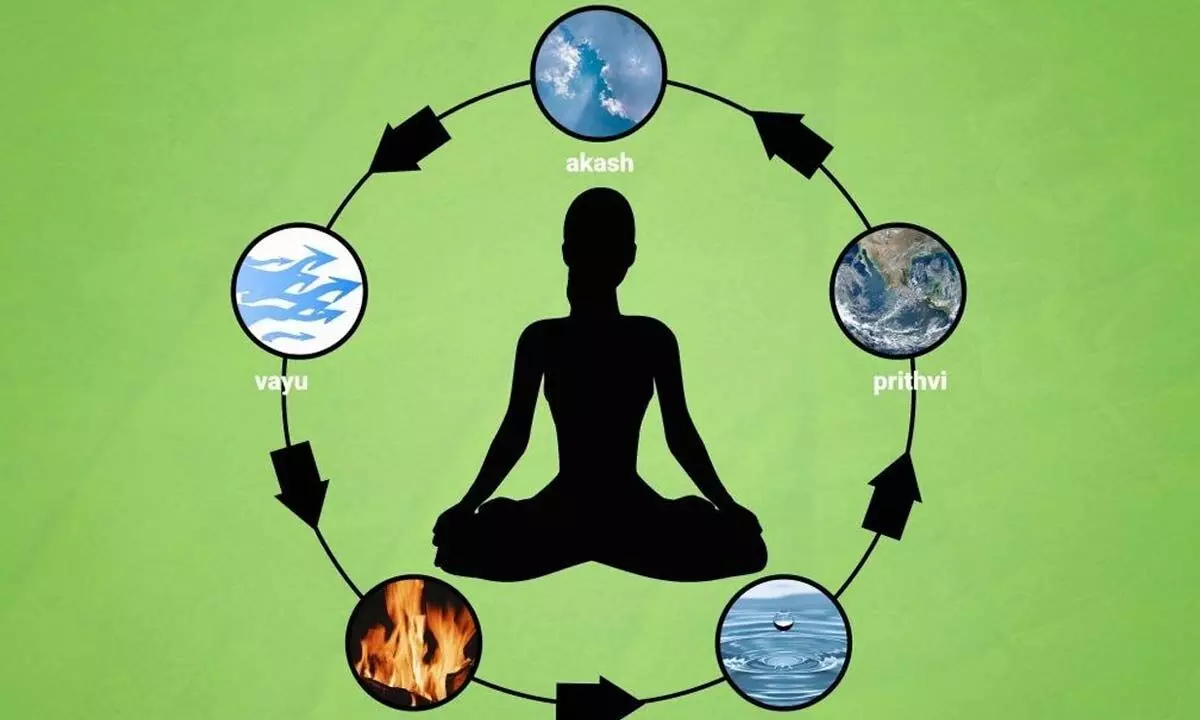Unleashing the power of Panch-tatva

The Five Elements That Shape the Universe
Panch Tatva, or the five elements, are the fundamental components of the physical universe according to Hinduism, Buddhism, and Jainism. These elements are believed to be the building blocks of life and the entire universe. The five elements are air, water, fire, earth, and ether. Each element has its unique characteristics and qualities, and they are interconnected and interdependent.
Air: Air is the first element of Panch Tatva, representing motion's energy. It is believed that air is the most vital element for life as it is responsible for carrying the oxygen necessary for all living beings' survival. In addition, air is also responsible for carrying sound, which is essential for communication.
The qualities of air are lightness, dryness, and mobility. It is also associated with the sense of touch; the corresponding organ is the skin. In addition, the air is related to the colour blue and is represented by the symbol of a circle with a vertical line through it.
Water: Water is the second element of Panch Tatva, representing the energy of fluidity. It is believed that water is the most vital element for life as it is responsible for carrying the nutrients and minerals necessary for the survival of all living beings. In addition, water is also responsible for regulating the body temperature.
The qualities of water are coolness, liquidity, and softness. It is also associated with the sense of taste, and the corresponding organ is the tongue. In addition, water is related to the colour white and is represented by the half-moon symbol.
Fire: Fire is the third element of Panch Tatva, representing the energy of transformation. Fire is considered the most potent element as it can destroy and create. In addition, it is believed that fire is responsible for digestion and metabolism in the human body.
The qualities of fire are heat, lightness, and dryness. It is also associated with the sense of sight, and the corresponding organ is the eyes. Fire is associated with the color red and is represented by the symbol of a triangle.
Earth: Earth is the fourth element of Panch Tatva, representing the energy of stability. Earth is believed to be responsible for providing a stable and supportive environment for all living beings. Earth is also responsible for providing the necessary nutrients and minerals for the growth and survival of all living beings. The qualities of earth are heaviness, solidity, and hardness. It is also associated with the sense of smell, and the corresponding organ is the nose. Earth is related to the colour yellow and is represented by a square symbol.
Ether: Ether is the fifth element of Panch Tatva, and it represents the energy of space. Ether is considered to be the most subtle element as it is present everywhere, but it cannot be seen or touched. Therefore, it is believed that ether is responsible for providing the necessary space for all living beings to exist.
The qualities of ether are emptiness, lightness, and expansion. It is also associated with the sense of hearing, and the corresponding organ is the ears. Ether is associated with the colour black and is represented by the symbol of a circle.
The five elements of Panch Tatva are interdependent and interconnected and present in all living beings and non-living things. According to Hinduism, everything in the universe is made up of these five elements, and the balance between these elements is necessary for the proper functioning of the universe.
In Ayurveda, the traditional system of medicine in India, the balance of these elements in the human body is considered the key to good health. The imbalance of these elements in the body can lead to various diseases and disorders. Ayurveda believes that by maintaining the balance of these elements in the body, one can achieve good health and well.











